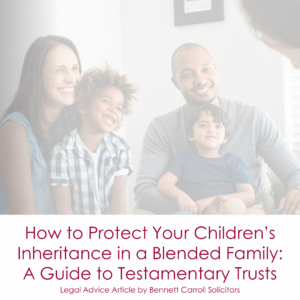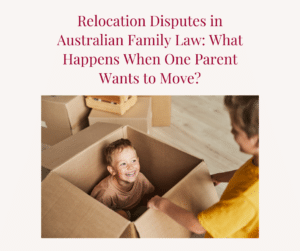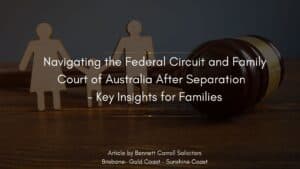Going to court is never a pleasant experience and it is even less pleasant when the matter is before the family court because tensions are high and children are often involved. In such circumstances, the utmost concern of the court is the wellbeing and best interests of the child. The phrase ‘best interests’ is necessarily broad to encompass as wide an area as possible, but remains underpinned by 2 primary considerations:
- The benefit of the child having a meaningful relationship with both parents; and
- The need to protect the child from physical or psychological harm from being subject to or exposed to abuse, neglect of family violence.
A full list of the additional considerations are set out in the Family Law Act and are dependant on each case before the court. These typically include, any views expressed by the child in conjunction with their age and maturity level, their relationship with their parents, the capacity of their parents to provide for the child’s needs and the likely effect of any changes in the child’s circumstances and living arrangements.
Another consideration to be made is the lifestyle and culture of the child and any other such characteristics thought to be relevant. This is especially applicable to Aboriginal and Torres Strait Islander children, as special consideration must be made for the child to enjoy their Indigenous culture with others who share that culture in their community.
Also, consideration must be taken as to the legal history of any of the parents or family members of the child, namely domestic/family violence orders. If there is a family violence order in place or there has been in the past on one of their family members, this can strongly influence the court to make a consent order against the particular person.
While there are quite a number of considerations to be made in determining the ‘best interests’ of the child, the court is fundamentally guided by the benefit of having a meaningful relationship with both parents, and protecting the child from physical or psychological harm in all forms. The extra considerations will carry their own weight in influencing the decision on a case by case basis but it is the 2 principles above that outline what it means to act in the child’s best interests.
Call us on or email and safeguard your interests every step of the way- We are your legal problem solvers.







